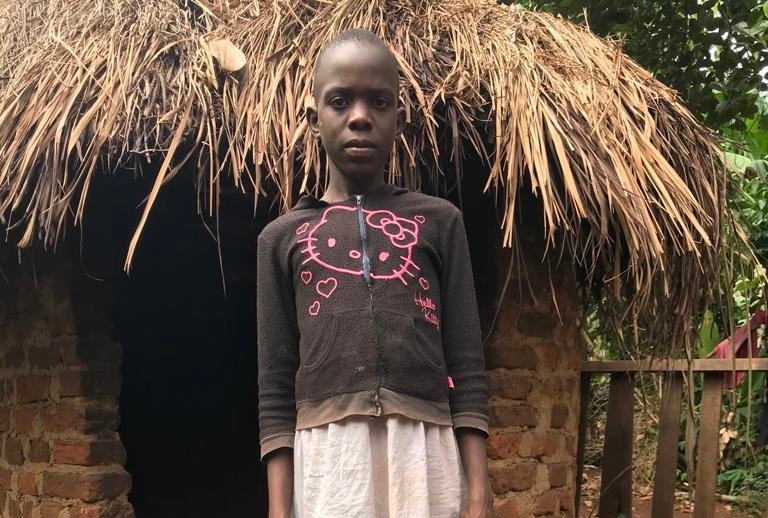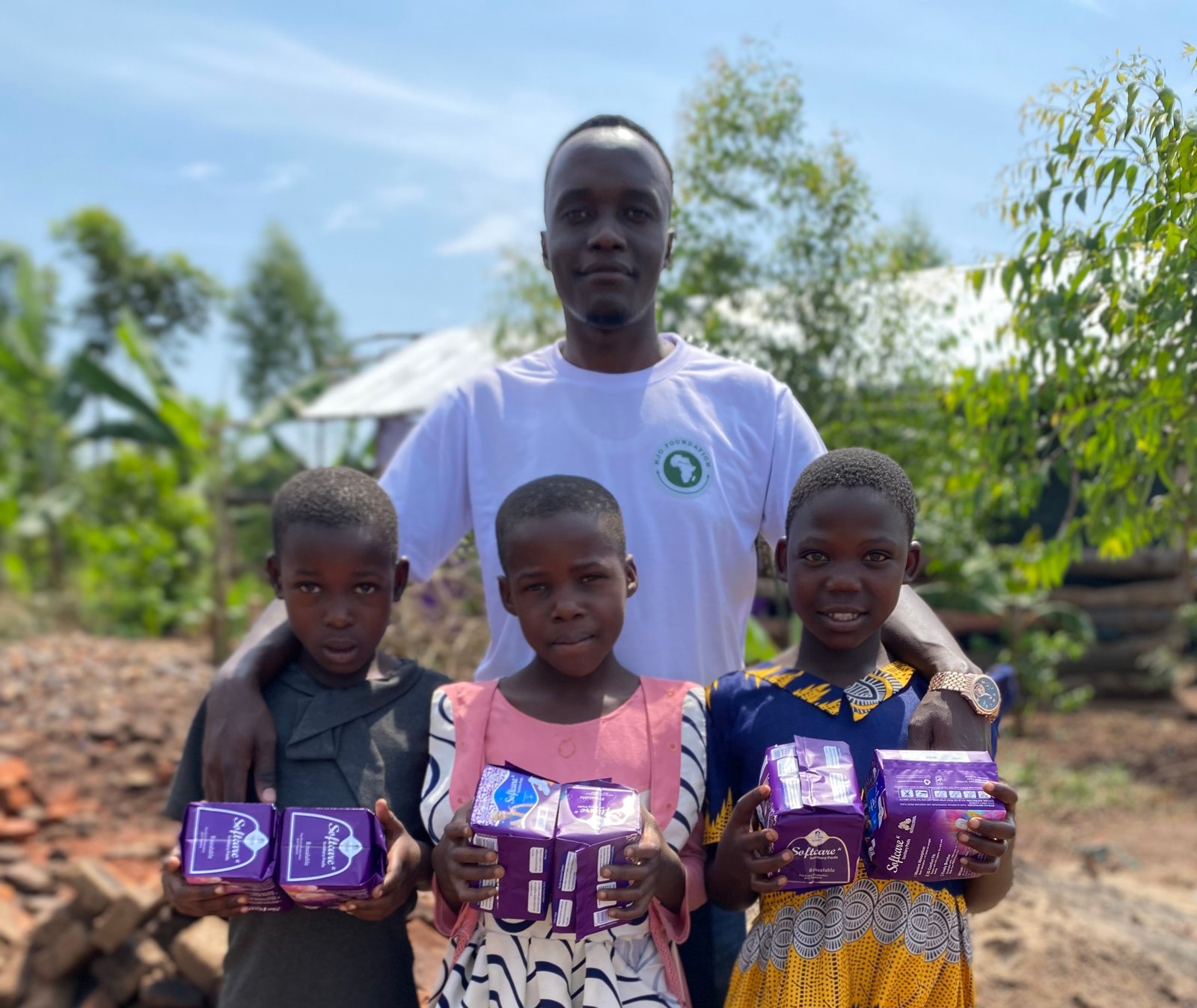
Building Stronger Communities through Health Initiatives
NJO Foundation Africa is an organisation with a mission to not only provide immediate assistance to underserved individuals in Uganda but also to raise awareness about their plight. With a vision to expand its reach across Africa as resources permit, NJO Foundation Africa continues to expand its outreach by visiting and meeting with new communities. By broadening our organization’s understanding of challenges faced by these individuals, it aims to inspire action and drive lasting change.
Africa at large continues to face numerous challenges in the health sector as the continent struggles with multiple intractable diseases that kill tens of millions of people every year. The three most prevalent infectious diseases in Africa are Malaria, HIV/AIDS and Tuberculosis and the health challenges faced in Uganda reflect this.
According to the World Malaria Report 2020, an estimated 229 million cases of malaria occurred globally in 2019. About 94% of these cases occurred in Africa (27% in Nigeria, 12% in Congo, 5% in Uganda, 4% in Mozambique and 3% in Niger). In 2022, the World Health Organization estimates that Uganda hosted 12.7 million malaria cases and 17,556 malaria deaths. These high numbers can be connected to the fact that over 90% of Uganda hosts a stable, ongoing transmission of malaria. In other words, the environment surrounding Ugandan communities is conducive in the persistent spread of the disease. This is why organizations and the Ugandan government urge Ugandans to avoid and if possible remove, mosquito breeding hotspots. Preventative actions for the spread of malaria include dispersing stagnant water, sleeping under insecticide-sprayed mosquito nets, covering bushes and spraying insecticide. NJO Foundation Africa has and continues to assist in malaria prevention by spreading awareness and giving out mosquito nets when possible.
In 2019, 20.7 million people were living with AIDS in Eastern and Southern Africa ,4.9 million in Western and Central Africa and 0.24 million in Northern Africa and the Middle East. For Ugandans, HIV/AIDS is the second leading cause of death, first being neonatal conditions. In 2019, the WorldHealth Organization reported that in Uganda out of every 100,000 men, 57 died from HIV/AIDS and out of every 100,000 women, 38.9 died of HIV/AIDs. These rates are alarmingly high, especially when considering the rates in other countries with more resources and availability of treatments. The United States Center for Disease Control reported in 2021 there were 1.3 HIV deaths per 100,000 Americans. This means Ugandan communities are facing over 30 times more deaths from HIV/AIDS. NJO Foundation Africa has been working in communities to spread awareness of HIV with the hope of minimising its spread and stopping stigmatisation. Specifically, our organisation has targeted youth with sensitization efforts.
Overall, the health challenges and inequities facing Ugandans can be attributed to many factors, several of which are:
1. Inability to access medical services.
2. Lack of enough knowledge about health and the killer diseases.
3. Limited health centre facilities.
4. Poor infrastructure.
5. Shortage of labour in the health facilities.
6. High costs incurred when accessing these medical services.
These factors challenging many Ugandans are why NJO Foundation Africa has seen their purpose to include uplifting communities’ knowledge and access to their necessary healthcare. Our organisation continues to work towards:
- Organising as many medical outreaches as possible especially in rural areas to health educate the people and make healthcare delivery easier and quicker.
- Organising medical camps especially in rural areas in order not only to provide free medical services to the people but also to educate them about preventive healthcare.
- Establishing health care facilities in the rural areas to bring these medical services closer to the people.
- Improving healthcare infrastructure and improving access to services in rural areas.
Health Education
There is a big knowledge gap concerning health among Ugandans. Uneducated citizens and citizens living in rural areas especially lack necessary health knowledge. Also, some citizens adhere to their cultural beliefs, traditions and norms concerning diseases and this leads to their delay and hesitance to seek medical services. As a result, for many, by the time they seek medical care, it's too late. As NJO Foundation Africa, we would like to bridge this gap by organising medical outreaches to some of the deeply located rural areas and reach as many people as possible. Furthermore, we hope to continue our discussions with communities about general health, sanitation and personal hygiene practices as well as our lessons on the main killer diseases in Uganda.

Free Medical Services
Apart from having ignorance concerning health and diseases, many people don’t access medical services due to the costs involved. Most people in rural areas live impoverished lives and since infections and diseases are not planned, many people find themselves unable to afford their treatment expenses. As a result, some have just given up on medical services.
People losing hope in attaining medical care is the reason NJO Foundation Africa would like to set up various medical camps to provide free medical services in impoverished communities. These people should not feel forgotten or that their health is unimportant. We plan to utilise medical camps to not only treat disease but to also provide preventative health education. As the saying goes “Prevention is better than cure”. We look forward to making sure that the preventive measures are reinforced in the community with the help of the local council leadership and the Village Health Team (VHT) members. Using the support of these community leaders, we know we can make a sustainable and positive change within these underserved communities.
Health Facilities
There are scarcely any health centre facilities in the rural areas located very far from the urban centres. This scarcity majorly influences rural communities' acquisition of healthcare services. The cost of transportation and the time (usually hours) of transportation all on top of the cost of medical services can become a tremendous burden.
NJO Foundation Africa plans to establish different health facilities in areas without a health centre with well-trained staff and stocked medicines for 100s of miles. By supporting the creation of these facilities, we hope to improve people’s medical service-seeking habits. Also, through increased accessibility, we hope to have made services more available, accessible and affordable for patients.
Health Care Infrastructure
Healthcare infrastructure refers to many components. It includes, but is not limited to, the roads to the healthcare facility, the transportation means, the healthcare facility’s building and the medical equipment needed in service delivery.
Through all our organisation’s goals, NJO Foundation Africa aims to improve healthcare infrastructure. Specifically, we aim to improve the roads to the health care facilities, build worthwhile health centres, increase both the quality and quantity of ambulances for the transportation of critical patients and provide necessary equipment in health care delivery.
Good health is incredibly important to each individual. Diseases or illnesses affect people differently and are able to have an impact on every aspect of a person’s life. From the financial consequences of medical treatment to the emotional, mental and physical consequences both sickness and treatment can bring to one’s body, NJO Foundation Africa recognizes how health is both important and personal. Ugandan communities continue to suffer from the global inequities in infectious disease treatment. They continually have to worry for themselves as well as their loved ones and the community at large.




